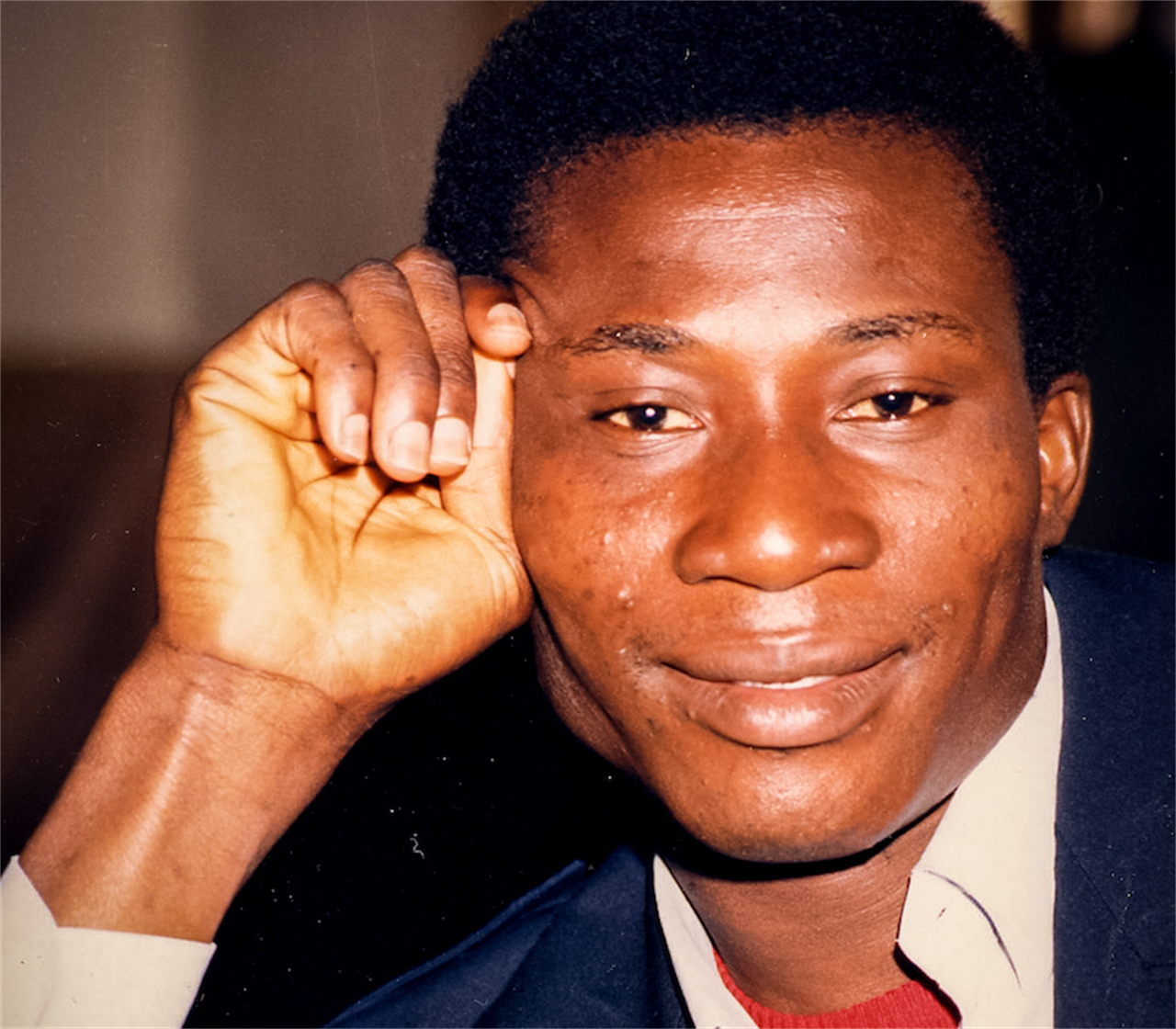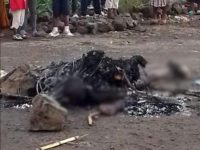In Bukavu, a woman protests in the streets against the authorities; the police shoot and…

In Memory of Jerry Masslo, South African Refugee Who Compelled Italian Government to Act on
If he were still alive, Jerry Essan Masslo, a South African refugee who was murdered on 25 August, 1889, in the rundown shack where he lived with other migrants picking tomatoes, would turn 60 today.
On the day that would celebrate his birth, we thank Ketty Volpe, one of our regular contributors, for paying tribute to his sacrifice and commitment.
Jerry Masslo’s murder shocked Italy and compelled the government in office to issue the first measures to regulate migrants; the Martelli Law.
In the spirit that drives this magazine, this is why it is important to remember his sacrifice.
Antonella Napoli, Editor Focus on Africa
It was a hot night in August. One of those humid and muggy nights you don’t sleep a wink while waiting for daylight. In the shack, in that run-down shanty, wretched and neglected in the “Red Ghetto”, the scorching heat inhibited the aurora at Villa Literno. Masslo, and the others, were ready, always ready, to get on, at the break of dawn, a truck that took migrants to work in the fields. The foremen and bosses of bodies and souls. Bodies like tireless machines. On that scorching night, Masslo had tuned his guitar and strummed lullabies and songs from his homeland. He didn’t have much time to play anymore and his callused fingers pinioned the strings. The sound was a little rough, but it was music… and it brought back emotions from the past. Masslo tries to lie down with the guitar by his side and his voice is muffled when some youths break into the shack. It’s a robbery. Jerry Essan Masslo fights back. He defends the little money he has earned hunched over furrows in the countryside blistering under the sun, picking fruit and tomatoes. He is murdered. In cold blood on the scorching night of 24 August 1989. A night of innocent red blood from Africa and Italian shame. A horrible page of history. Masslo was alone in the world. No tears from a loved one. He had courage, strength, temperament and the heart of a lion. First in Nigeria and then here, with the desert in his heart. A staunch opposer to apartheid in South Africa. He protested his opposition peacefully along with others and his family on the streets. And one day, his last shouting, “No apartheid!” he was knocked to the ground, kicked ferociously, and suffered lacerating wounds in front of his young son and his father in their last moments of life… killed, along with many South African brothers, while protesting in the name of brotherhood without colors, freedom for all, freedom for the people, for all people, for continents, for the world, and for everything. Masslo believed in it. He had been taught that way and he had taught his son who, without fear, walked in step with his grandfather, à còtè de son grand pére, in “no apartheid”. He was suddenly alone. Petrified. Bewildered. Dazed in the charge, surrounded by the desperate screams from the wounded and the silence of the death of his family, dead because of their love for peace and freedom. Dead for a united and free Africa. Alone in torn and divided Nigeria. They want to kill him. So, he decides to go far away, to leave Africa. He sells the jewelry around his wrists, a watch and a gold bracelet, and buys an airplane ticket for Italy. He spends four weeks at Fiumicino airport where he lands. He asks for asylum. He spends days, weeks, at the airport with the desert in his heart, almost forgotten in the gazes of observers, tourists and reporters who tell his story to the world. Amnesty International and the UN Agency start the necessary procedures with the Ministry of the Interior to obtain a permission of stay. Thirty years ago, Italy only gave refugee status to those who came from Eastern Europe. The case had a large following. Public opinion observed the black man’s plight closely; he had escaped from the cruelty of apartheid, flown away from Nigeria to Italy, in Fiumicino, alone in the world, for all to see at the airport. Diplomacy and bureaucracy finally grant him permission to stay in Italy. It was 1988. Jerry is housed in the Tenda di Abramo of Comunità di Sant’Egidio in Rome where he stays for almost a year. In 1989 he moves to Villa Literno with fellow members of the community for the tomato picking season. He finds a place to stay in a run-down hovel, desolate and dark, a shack to call home. All day and almost into the night, bent over working and never raising his head. Pick by hand and set down by hand without straightening up. Pick tomatoes, cut them off well without ruining the stalk it still has to bear fruits and set them down in the crate. Masslo did it with care. He put up with harassment and abuse from bosses and foremen with painstaking patience. His days were spent in tomato red… he saw his Africa in the ever-changing colors of the land, he covered roots that were trampled on, he blessed the men and earth that had welcomed him. He, Masslo, Nigerian, alone in the world, left without roots, proud on Italian soil, escaped from apartheid, murdered by young Camorrists for a few lire earned with back-breaking sweat. The CGIL (Italian General Confederation of Labor) always honors him. Not often, someone places a flower on his grave. Masslo marked a moment in time. The time of no apartheid. The time of no racism. The time of human rights and respect. The time of the battle against illegal employment and exploitation of labor. The Gotha in the CGIL and the FLAI (Federation of Agroindustry Laborers) dedicated a day of discussions and initiatives to Masslo to talk about the South African refugee, farmhand, robbed of his hard-earned money, murdered in the Terra di Lavoro [in the Campania Region]. Masslo, the Nigerian who fought against apartheid is buried in Italy, in Villa Literno. He was a hero. Few people know his story. If only they knew… the Nigerians would be proud of him, of his courage, of his fight for rights, of his life spent for freedom and ended so tragically. Nigeria should apologize to him. It should pay tribute to him with all the honors due to heroes. Because Jerry Essan Masslo was a hero! A hero with the desert in his heart. It’s yesterday’s history and news… and today, thirty years later, how many like Masslo leave Africa for a new day? For a day of freedom. Or perhaps for a minute more of life with the desert in their hearts.





